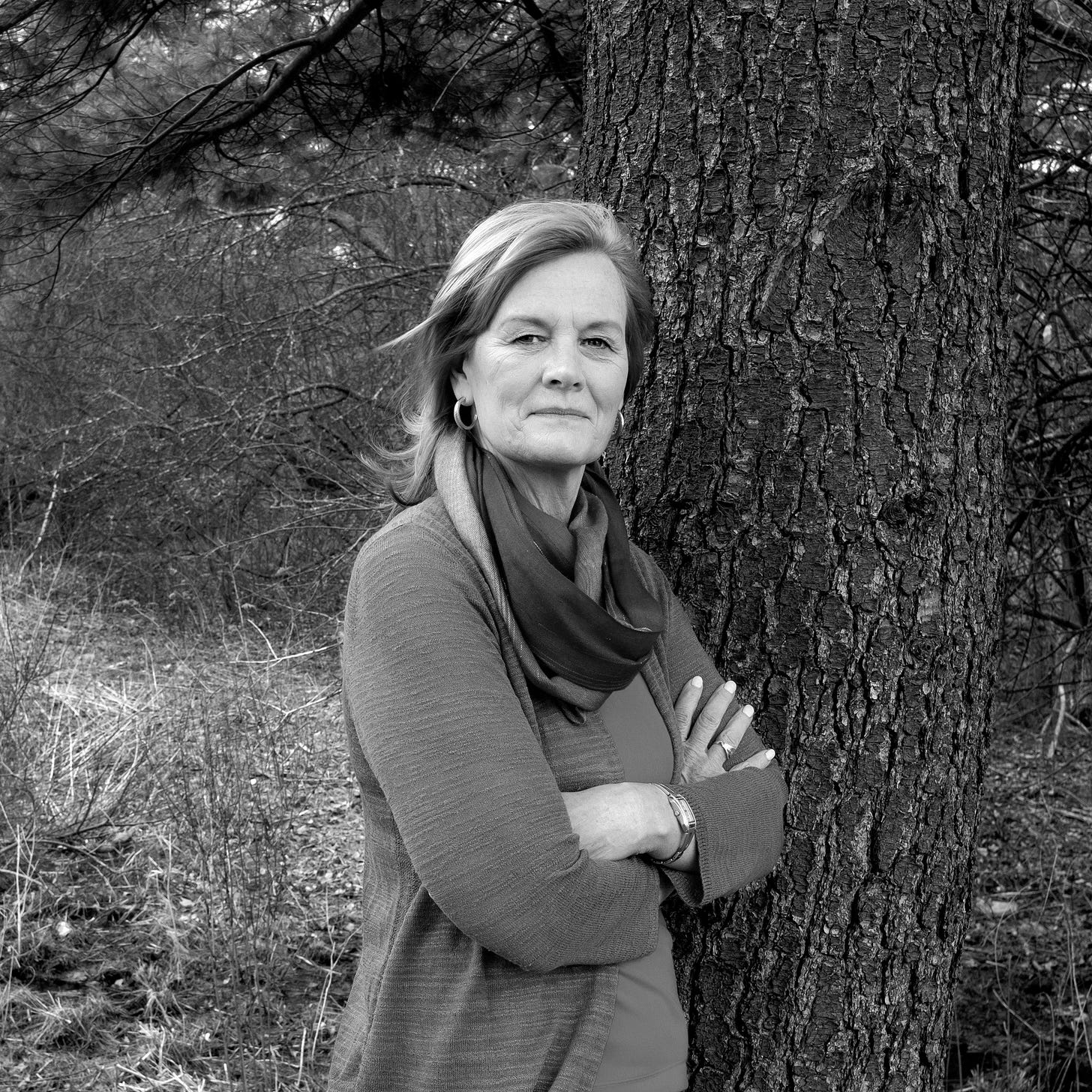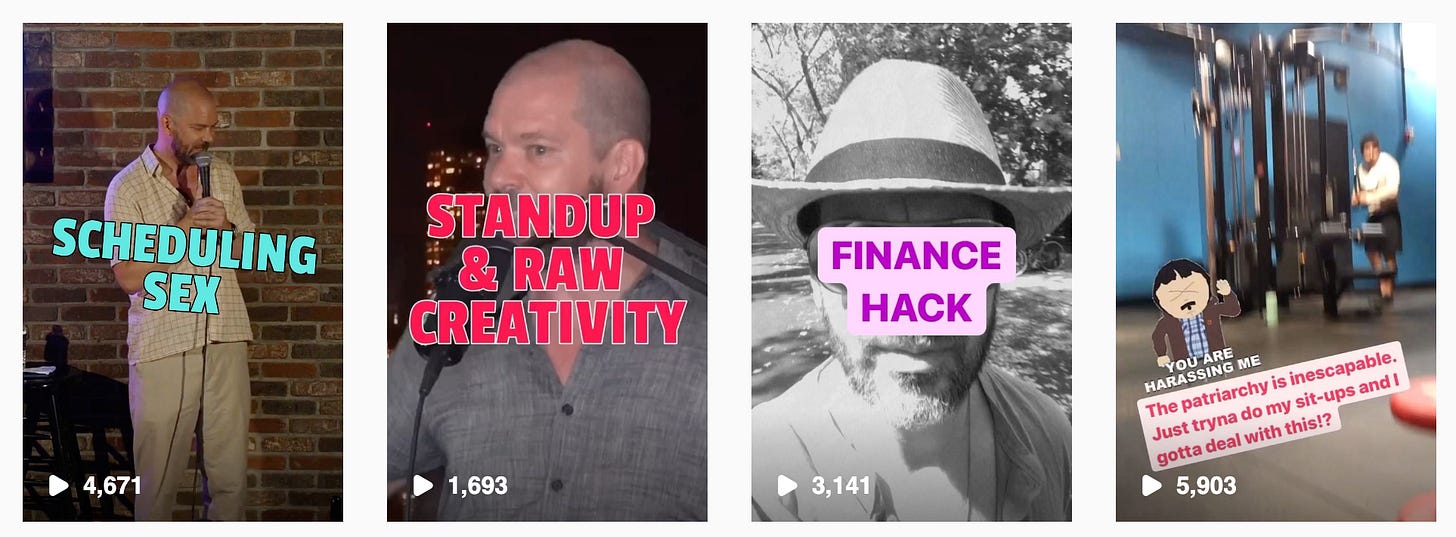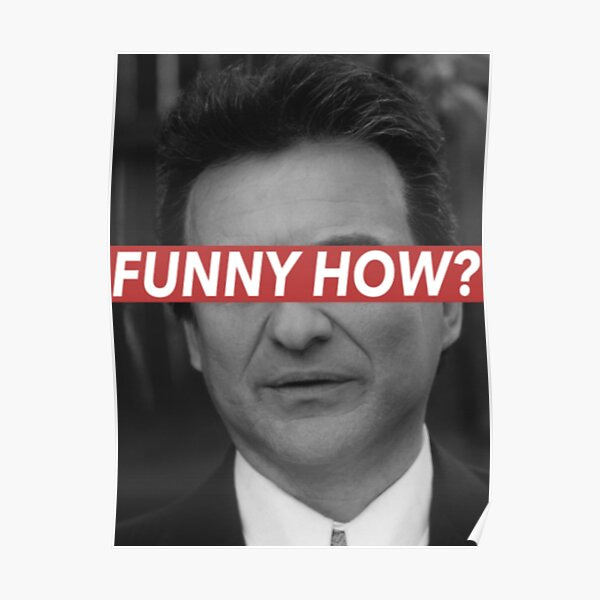Pay it backward 🔙✊
Rick Rubin/Johnny Cash. François Truffaut/Alfred Hitchcock. Quentin Tarantino/John Travolta. An examination of elevating elders in a "30 Under 30" world.
This is the Rubesletter from Matt Ruby (comedian, writer, and the creator of Vooza). Sign up to get it in your inbox weekly. And check out my other newsletter too: Funny How: Letters to a Young Comedian.
We always talk about paying it forward, but it’s equally remarkable when people pay it backward by elevating fading heroes.
Rick Rubin did it with Johnny Cash.
François Truffaut did it with Alfred Hitchcock.
Bill Simmons did it with Jackie MacMullan.
Brandi Carlile did it with Joni Mitchell.
Quentin Tarantino did it with John Travolta.
These younger, “hotter” talents decided to take time to focus on someone they’d long respected and help elevate them in the public consciousness. This sort of thing typically isn’t what the industry, focus groups, or the algorithm wants, but people don't know what they want until you show it to them.
Below are a few projects that originated from a place of genuine love and admiration that yielded magical results…
Rick Rubin & Johnny Cash
“I shot a man in Reno just to watch him die.”
-Johnny Cash
That’s some gangsta sh*t. And Rick Rubin, hip hop producer/guru, knew it.
Rubin attended Bob Dylan’s 30th-anniversary concert at Madison Square Garden and saw Cash still had greatness in him even though Cash had been dropped by his label, was doing dinner theater shows, and considering retirement. Rubin pitched him on a collaboration and promised him, “I would like you to do whatever feels right for you.” The resulting records are some of the best of Cash’s career.
Rubin knew the key was to keep it simple:
“I think if you let me record you singing the songs that you love, that you want to sing, that we’re going to find some that the people are going to like and are going to buy,” Rubin replied.
Rubin went on to pitch the idea of recording Cash alone and unplugged.
“You would take your guitar, sit down in front of a microphone and sing me the songs you love,” Rubin said. “Just sing me everything you want to record.”
Cash was intrigued. It turns out he’d once thought of doing an album like that. And he saw a conviction in Rubin’s eyes — a man of music who believed in what he was doing with probably more passion that Cash himself possessed at the time.
“Why don’t you give it a try?” Rubin asked.
“All right,” Cash replied.
Rubin sat barefoot with his dogs in his home and listened to Cash play. (The dogs barking would sometimes ruin Cash’s takes.) “I’d love to hear some of your favorite songs,” Rubin said. And Rubin brought him dozens of songs from younger artists, encouraging Cash to find ones that fit his man-in-black persona.
The albums were brutal, beautiful, and kickstarted a healing process for Cash on multiple levels.
“Rick Rubin and my father had a great friendship and it’s because of it that the work my dad did at the end of his life was created — that he felt creativity and invigorated again, even though he was being consumed by frailty,” John Carter Cash tells EW in a recent interview. “He was having Parkinsons-like symptoms, reoccurring bouts with pneumonia, broken jaw, missing my mother after she passed; he was blind, not many people know that. So there was a steady decline in many ways, but there was a far greater rise in strength.”
If you haven’t heard these albums, get on it. They’re downright holy.
François Truffaut & Alfred Hitchcock
In 1962, French director Francois Truffaut convinced Alfred Hitchcock, his filmmaking idol, to sit down for eight days and discuss Hitchcock’s directorial approach. Truffaut was 30, a former film critic who had directed just three movies. Hitchcock was 63 years old and had made over 50 films. The result might be the most famous book ever about film (and there’s a great HBO documentary about it too).
Wes Anderson wore out his copy: “I had a paperback. It’s not even a book anymore. It’s like a stack of papers.” In The New York Times Book Review, Phillip Lopate wrote about the book: "One is ravished by the density of insights into cinematic questions...Truffaut performed a tour de force of tact in getting this ordinarily guarded man top open up as he had never done before (and never would again).”
The book helped establish Hitchcock's reputation as an auteur after years of being viewed by critics as merely a light entertainer or even a hack.
Today, Hitchcock is universally regarded as a great director, but in 1962, he was seen by many critics as a master of schlock, a blockbuster filmmaker who leaned too heavily on violence and cheap suspense to be taken seriously…
Viewers get a quick lesson in Hitchock’s high-angle shots, signifying judgment from above, and recognize his skill at presenting villains and slowly getting the audience to identify with their particular foibles. They learn about his love of silence, and the emphasis it placed on his cross-cutting visuals, all meticulously storyboarded in advance.
Imagine if Truffaut never engaged Hitchcock like this. Think about the treasure trove of filmmaking details that would have gone to the grave with Hitch. It shows how one person expressing admiration can truly impact the wider world – and also how people in the same industry can have conversations that elude other interviewers.
Btw, here’s a fun Hitchcock bit: “We better not have cigars, otherwise it might make us look like movie directors,” Hitchcock said as photographer Philippe Halsman posed Truffaut and him for a photo. “God forbid we ever look like that.”
Brandi Carlile & Joni Mitchell
Speaking of holy: Watch musician Brandi Carlile help guide Joni Mitchell, singing in public for the first time since her 2015 brain aneurysm, through this astounding performance at the recent Newport Folk Festival. It was occasionally off key, totally on point, and left the audience feeling over the moon.
Carlile seems equal parts collaborator, MC, sherpa, healthcare provider, and adoring fan. Before Mitchell picked up her guitar, Carlile prepped the audience:
“She’s doing something very, very brave right now for you guys,” adding, “This is a trust fall, and she picked the right people to do this with.” Carlile was talking to the Newport crowd, but she might as well have been saying it to the other musicians onstage — including herself. Even when she was singing lead, tackling these complex songs with a soulful ease, Carlile’s gaze was attentively fixed on Mitchell, ready to catch her in case she stumbled but more often just letting Mitchell guide the way.
That article talks about “an intergenerational tenderness” and a similar vibe can be felt during this CBS News interview where Carlile assists Mitchell. “Joni hasn’t always felt the appreciation that exists amongst humanity for her,” Carlile explains. Watching Carlile bring all this together feels like such a gift – for Mitchell, for herself, and for all of Joni’s fans.
“Something’s lost but something’s gained in living every day,” sings Mitchell near the end – and Carlile chimes in “tell ‘em, Joni” and raises her hand to the sky. The crowd cheers, the chorus joins in, Carlile erupts in tears of joy, and Mitchell laughs a cathartic laugh. It moved me to tears. Maybe that’s because watching Carlile sit beside Joni reminded me of the health care workers who worked alongside my mother for years when she was ill. The dignity and respect with which people treat the aged reveals so much about their character.
Bill Simmons & Jackie MacMullan
Bill Simmons has interviewed legendary hoops reporter Jackie MacMullan many times over the years on his podcast and is clearly an admirer of her work. So when MacMullan decided to retire from the grind of NBA reporting, Simmons coaxed her into helming Icons Club for his Ringer podcast network.
It’s the perfect vehicle for a reporter of a certain age: She got to do most of the interviews remotely and it enabled her to cash in many of the chips she’s earned after decades of tough/fair reporting. (Sheesh, just imagine what it was like to be a female NBA beat reporter in the 80’s.) The resulting pod is hoops gold:
The premise, that greatness has been aided by and handed down from generous older generations of NBA stars, is a poetic one. MacMullan, whose relationships with players past and present are famously strong, got just about every living great to sit down for an interview for Icons Club, even Jordan.
Here’s an excerpt from an interview she did with Michael Jordan:
“I remember asking you once, ‘Hey, did you ever call Bird or Magic and say, ‘Tell me the secret to being a superstar,’” she tells Jordan. “You just laughed at me.”
Jordan laughs heartily at the reminder.
“I’m laughing at you now,” he says. “No, I never called them. I learned from afar. I mean, I understood what they obtained in their careers and their personalities and the way they played. And I wanted to emulate them in the way they were respected by the league and [how] they started winning championships, so they became a goal for me.
“But I didn’t get on the phone and say, ‘Hey, Magic, what do you think about this?’ or ‘Bird, what do you think about this?’ No, I didn’t do that. I knew if I was going to attain that I needed to learn to do it myself.”
As a hoops fan, I loved the pod and loved Simmons for seeing the opportunity, selling Jackie Mac on it, and turning it into a reality. People will be listening to this decades from now.
Quentin Travolta & John Travolta
Before Pulp Fiction, John Travolta’s career was in the tank. The previous two projects he’d worked on: Look Who's Talking Now – the third (!) of the that talking baby franchise – and the TV movie Boris and Natasha.
Then, Quentin Tarantino came along and rescued him. Travolta said, "Tarantino asked to meet me and said, 'I'm so disappointed with what you've done with your career. I want to fix all that.' He had to fight with the studio but he only wanted me and I was so deeply touched."
I remember the first time I saw that dancing scene with Travolta/Uma in the theater; it blew my mind. The nerve of Tarantino to cast Travolta (one can only imagine him explaining it on calls with studio execs) and then to put the guy from Saturday Night Fever in a dance scene where he does The Twist!? It was the directorial equivalent of the wink and kiss emoji (😘). And it worked so goddamn perfectly. It was Tarantino showing the world this man is an actor, this man is a dancer, and this man is a goddamn movie star – just try to take your eyes off him.
The anti-”OK Boomer”
When artists who have shine decide to turn that spotlight onto their mentors, it feels like the opposite of the “OK Boomer” attitude that dominates nowadays. Respecting your elders may be assumed in eastern societies, but it feels foreign here in the west, where we tend to see any sign of aging/dying as the Enemy That Must Be Ignored™️ (not to mention show business’ prevailing mentality: Target the 18-34 year old demographic, milk them for every last drop of disposable income, and exit stage left anyone showing a hint of wrinkles).
These examples show the magic that can be generated when we stop obsessing over futurists, 30 under 30 lists, and who has “potential” and instead honor those who’ve travelled the path before us and let their voices ring out again. When everyone is trying to go to Mars, it’s a good time to explore what’s been lost at sea. There are still plenty of treasures down there.
Comedy
Check out my most recent standup clips on Instagram, TikTok, and YouTube.
Recent posts at Funny How (my newsletter about standup philosophy):
Sign up to get updates here:
Quickies
🎯 We're really leaning hard on the leisure in "athleisure" – honestly they should just be called airport pajamas.
🎯 In retrospect, magazines seem crazy: "So there was a hot girl on the cover, a letter from the editor, weird gadget profiles, an actor in a suit, a cologne sample, an essay from one of the best authors alive, and then an AOL CD would drop out from the middle."
🗯 Journalism “elites” aren’t controlling the masses. They’re just giving them what they want. Seth Stephens-Davidowitz in Everybody Lies:
[Many] have viewed American journalism as controlled by rich people or corporations with the goal of influencing the masses, perhaps to push people toward their political views. Gentzkow and Shapiro’s paper suggests, however, that this is not the predominant motivation of owners. The owners of the American press, instead, are primarily giving the masses what they want so that owners can become even richer.
🎯 How the hell are we gonna have a civil war when the split ain't north vs. south but city vs. country? We're gonna have to airlift bagels, cocoa butter, and abortion doctors into Milwaukee/Denver/Austin like they're Berlin after WWII.
🎯 We waste 50% of our time arguing about things that impact 0.5% of the population.
🗯 “The debut novels bought in 2022 thus far are not just overwhelmingly written by women, but overwhelmingly focused on race, gender, sexuality, or class.” Kat Rosenfield argues diversity activists won't admit they've won.
Why, after all this progress, do publishing’s gatekeepers resist any suggestion that diversification has been a success? It’s a paradox of the moment that a person is supposed to want this sort of change, demand it even, but also fly into a frothing rage at the notion that the desired change might in fact be happening. Maybe it’s that the survival of any progressive movement requires that you continually shift the goalposts, lest your organisation problem-solve its way into obsolescence. Maybe it’s a sense that however much has been accomplished, there’s work yet to be done. Or maybe it’s just the cognitive dissonance that always accompanies initiatives like this: everyone wants to say they’re hiring for diversity, but nobody wants to be seen as a diversity hire.
🎯 Suggested tagline for Socialism: "Look, how much worse could it be?"
🗯 The difference between a fee and a fine. From Morgan Housel’s great interview with Tim Ferriss. He’s talking about in the context of investing but it applies to so much of life. Sometimes volatility is just the cost of “doing business.”
“Understanding the difference between a fee and a fine,” which seems like they’re really similar but there’s a very important difference which is, a fine means you did something wrong like, “Shame on you, here’s your speeding ticket. Don’t do it ever again, you’re in trouble.” And a fee is just a price of admission that you paid to get something better on the other side. Like you go to Disneyland, you pay the fee, and then you get to enjoy the theme park. You didn’t do anything wrong, it’s just that’s the fee. I think if you could situate your life to where you view a lot of the ups and downs, not all of it, but a lot of the volatility in investing, a lot of the volatility in your career, as a fee instead of a fine, then it just becomes a little bit more palatable. And when the market falls 30 percent, it’s not that you enjoy it, you don’t think it’s fun, but you’re like, “Okay, I understand this is the fee that I have to be willing to pay in order to do well over a long period of time.”
Bonus content (for paid subscribers)
Up ahead: Thoughts on Shakespeare, punk rock, death threat inflation, gun laws, the problem of on-ness, Gen Z, and more examples of paying it backward.
Keep reading with a 7-day free trial
Subscribe to The Rubesletter by Matt Ruby 💎 to keep reading this post and get 7 days of free access to the full post archives.






